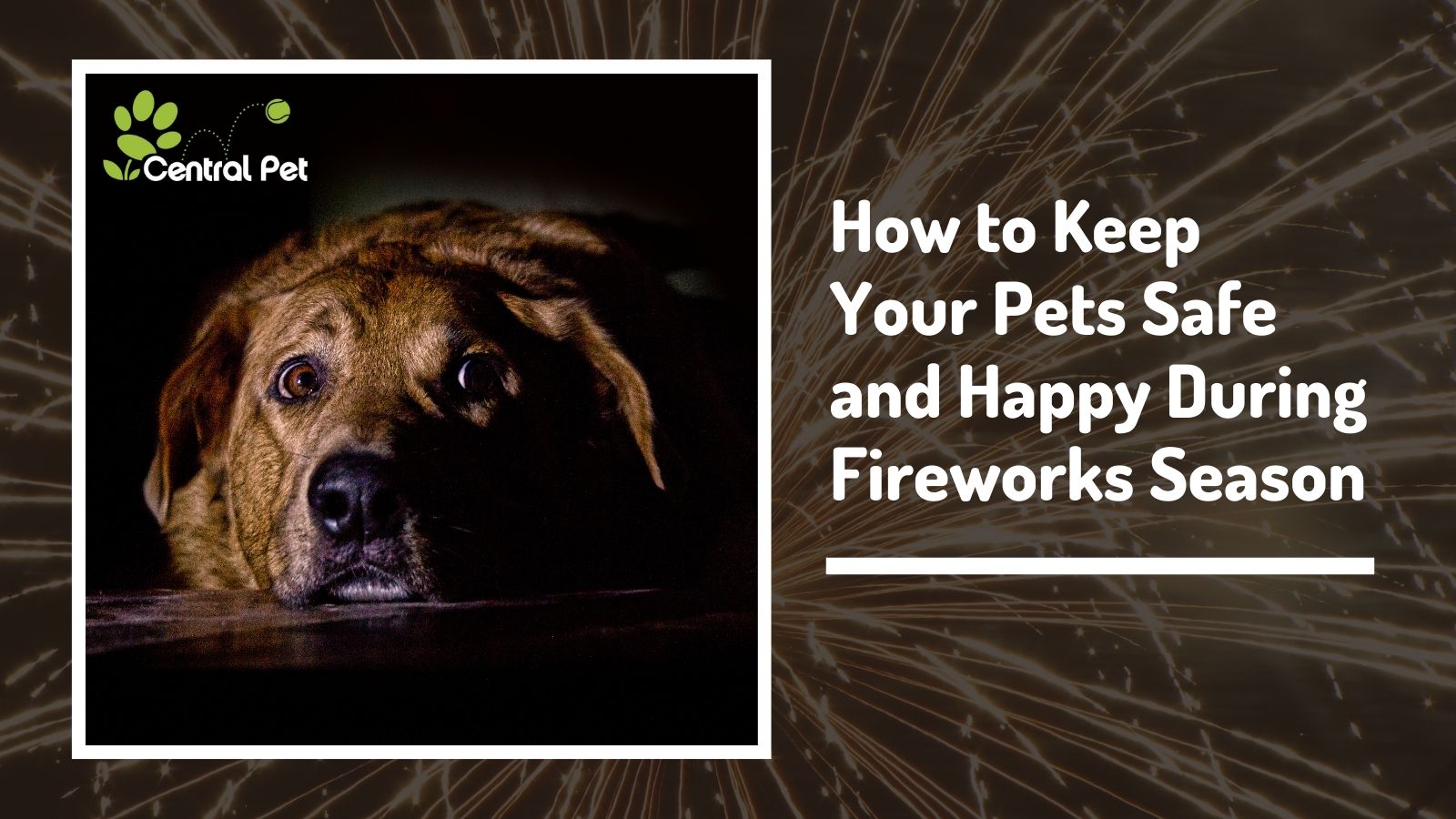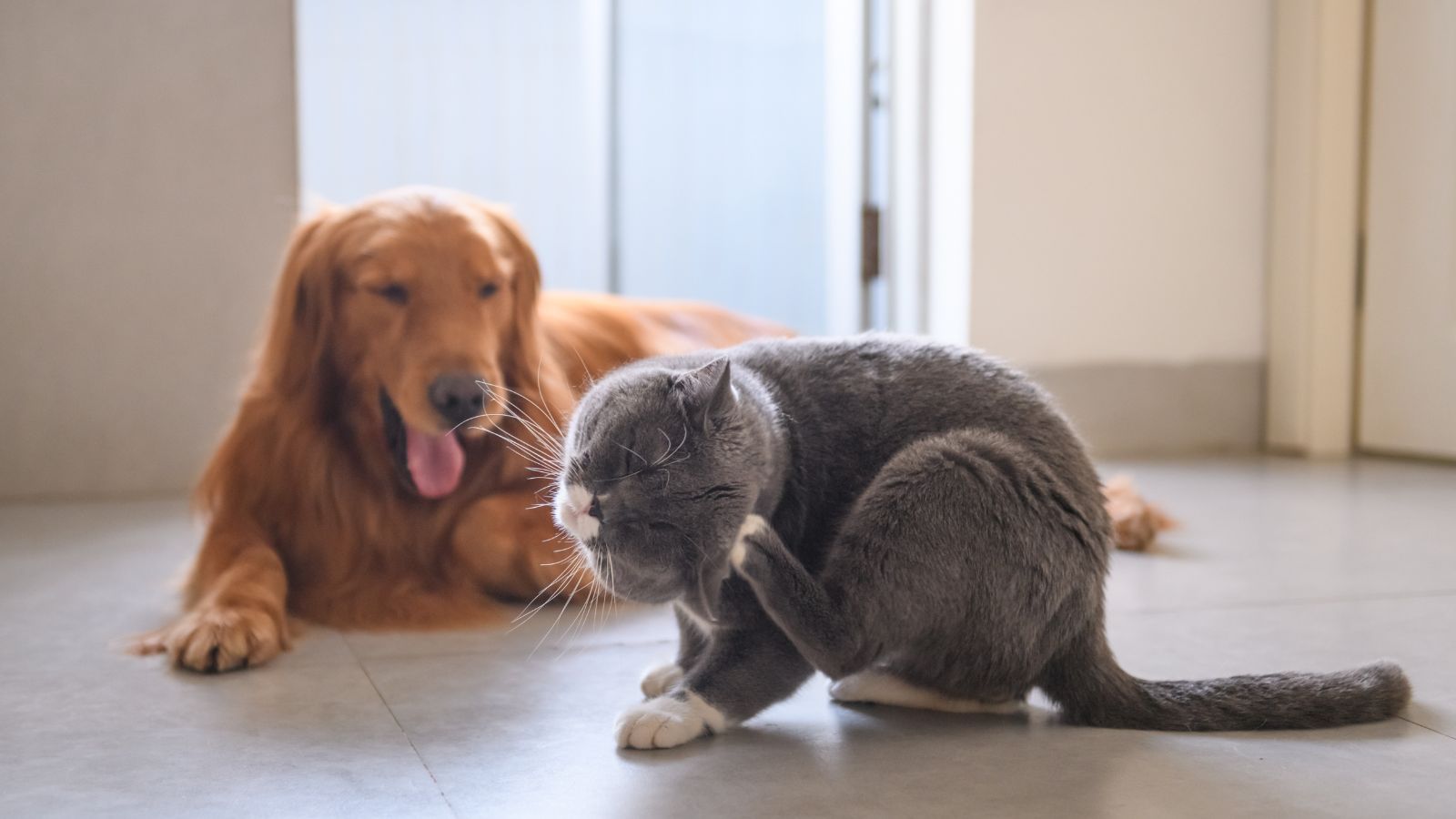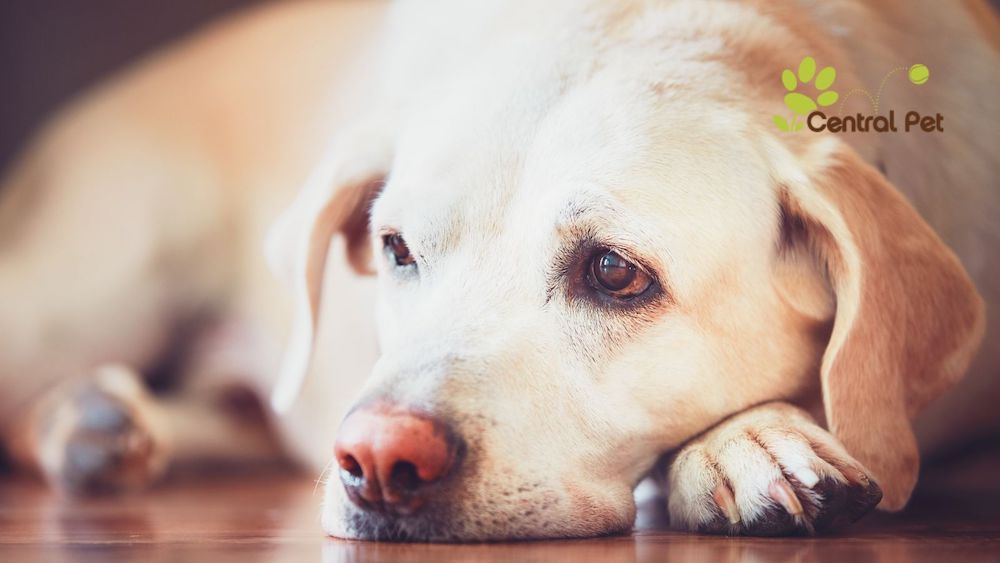It's that time of year, again - firework season. And that can mean some great times with friends and family, but it can also be a time of stress for many pets and their owners.
The American Society for the Prevention of Cruelty to Animals (ASPCA) gets calls about these scary noisemakers on and around the Fourth of July and New Year’s Eve since these celebrations are known for fireworks. Here are some things you can do to help keep your pets safe and happy this Firework Season.
10 Tips to Keep Your Pets Safe During Fireworks Season
1. Keep your pets inside.
Even if you typically take your dog for a long walk late in the evening, it's safer to skip it or shorten it on the days when there are still fireworks being set off. Many partygoers don't wait until nightfall to set off fireworks.
2. Keep your dog on a leash during walks.
If you're out with your dog and he's startled by a loud explosion, he could bolt into the darkness unless he's on a leash.
3. Check your backyard for possible escape routes.
Even if you usually leave your dogs outside in the backyard with no issues, fireworks could frighten them. Frightened dogs are more likely to try to escape by digging under, jumping over fences, or squeezing through gates. Look for loose boards, gates that don't entirely shut, or areas where they've tried to dig out before to ensure everything is as secure as possible.
4. Keep doors secure.
Keep the doors securely shut if you're keeping your pets indoors to help them feel safe during fireworks. This makes it harder for your pet to squeeze through and escape. If your pet escapes in the darkness, he is much more likely to become lost, struck by a vehicle, or taken by someone. Even if your pet has never bolted through an open door, fear of fireworks could elicit a flight response.
5. Surround them with comfort.
If you're there with your pet during fireworks, reassure them. They may be pacing, barking, hiding, or panting excessively. Give them physical touch. If your pet feels safe in a crate in another part of your house, bring it into whatever room you'll be in during the peak fireworks time. Speak to your pet in soothing tones and provide plenty of TLC! If you have a strict off-the-furniture policy, New Year's Eve or the 4th of July might warrant making an exception to this rule.
6. Use CBD to lower anxiety.
We know that CBD can help lower pet anxiety (check out our blog: CBD for Pet Anxiety). Using non-THC CBD oil or treats for your dog can help relieve her stress naturally. If you haven't used this before, it's best to use the lowest amount possible at first. If CBD is in your plans for this year's fireworks season, start it days before to see how your pets react and the dosage that works well for them. If you're in the area, stop into our Tucson location, and we can help you choose a CBD product for your pet.
7. Board them.
If you aren't home to comfort your pets, consider boarding them at a facility that's not located near any residential areas or planned fireworks celebrations. Make sure to explain why you're considering boarding them (to keep them away from the sounds of fireworks), and ask them about their protocol for comforting anxious pets.
If you’re looking for a trustworthy partner to take care of your animal, Central Pet offers a full suite of boarding facilities and services. Our services include indoor rooms with constant climate control and several scheduled play times with other dogs close to their size.
8. Vacation with them.
A lot of people like to travel with their pets. If you're going to be somewhere remote, where there won't be a lot of noise, this could be an excellent option for keeping your pet happy over the firework season. Check out our checklist for traveling with your dog.
9. Drown the sights and sounds.
Keep your windows, curtains, and blinds closed as it gets darker. You can muffle the frightening booms and crashes by turning up the volume on your stereo or TV.
10. Talk to your neighbors.
You might let your neighbors know that your pup may react to fireworks so they can be on the lookout if they should bolt. And, perhaps they can let you know in advance if they're planning to shoot any fireworks off so you can prepare your pet.
While we all want to think that our pets will never wander off and get lost, the truth is that they can, so let's talk about how you can keep them safe in their environment. Understanding the key factors behind pet loss can help you better understand how to take preventive measures that apply to you and your pet.
The Statistics Behind the Fireworks and Pet Loss
The busiest days of the year for animal shelters are the days surrounding July 4th. Not all our furry friends understand or enjoy the fireworks as we do. It's a very traumatic and stressful time; many pets are lost around July 4th. What's even worse is only 15-20% of dogs entering shelters are ever reunited with their dogs. The ten tips we listed above are great for reducing the chances of them running off, but let's consider the possibility of them getting out. It's essential to take as many preventative measures as possible and be prepared with what to do next if they happen to get out.
What To Do If You Lose Your Pet from a Fireworks Scare
If you can't find your dog, start spreading the word immediately. Tell everyone in your household and start by looking close to home. They may have run to a familiar or comforting place. Look in their favorite hiding spots, such as under bushes, behind fences, in sheds, or under decks.
Walk around your neighborhood with treats and call out their name. Tell your neighbors and nearby friends that your dog is missing, and have them check all their yards—you never know where he might have wandered off! If you have another dog at home, bring them along on the search—dogs are social animals who typically stick together in groups.
Remember to bring a recent photo of them for people to reference and put up flyers at nearby intersections, pet stores, veterinarian offices, animal shelters—anywhere people might see them.
One of the most important things to do is inform your vet and local shelters. If someone finds them, they'll likely bring them to the nearest shelter or vet. You'll want your local shelter and vet to know that your dog has been missing as they have the ability to scan for a microchip, check it, or tag it as lost. This will make it easier for your pet to get home. If you don't have a microchip or tag, consider getting one now!
If you live in Pima County, Arizona, click here to see the Lost and Found Pets page.
Preventative Measures to Help Keep Your Pet Safe
When a beloved companion is missing, it can be highly stressful, especially since pets are considered family for many people. While there's no way to guarantee that your pet will never get lost, there are ways you can reduce your risk of ever having to go through such an ordeal.
One of the simplest and most effective preventive measures is to have your dog microchipped. ID tags and collars are prone to becoming worn and illegible or breaking, whereas a microchip will last your pet a lifetime. When a microchip is scanned, usually by a vet or an animal shelter, it is associated with a unique identification number that is used for identifying your pet with the microchip company. Instead of trusting a Good Samaritan with your contact info, the microchip company will notify you that your missing pet has been found. If your pet runs off, microchipping allows anyone who finds your dog to get them back as soon as possible.
If you're looking for something a little more advanced than just having them chipped, consider buying a GPS collar or tag that tracks their location with cellular technology.
Make sure they have their dog collars on with current contact info. The average person won't be able to scan a dog's microchip, but they'll be able to read their collar if they find your dog. This can make it easier for them to return your dog home or call you immediately.
If possible, keep a leash attached to your dog when outside your home. This may seem like common sense, but many people don't realize how often they're not using leashes when walking their pets. In some situations, an owner may think that their pet is well behaved enough that he doesn't need one or that it's too inconvenient to always carry one around.
Plan Ahead for the Festivities
While firework season can be a stressful time for pet owners and pets, a little forward-thinking and preparation can help everybody enjoy the celebration! By taking these small steps and thinking about how fireworks may impact your animal, it is more likely that your pet will be happy and healthy once we’ve made it through the fireworks. If you’d like to talk more about how to prepare, or if you need some additional information, contact our Tucson location to see the difference our staff can make in your pet’s life.






